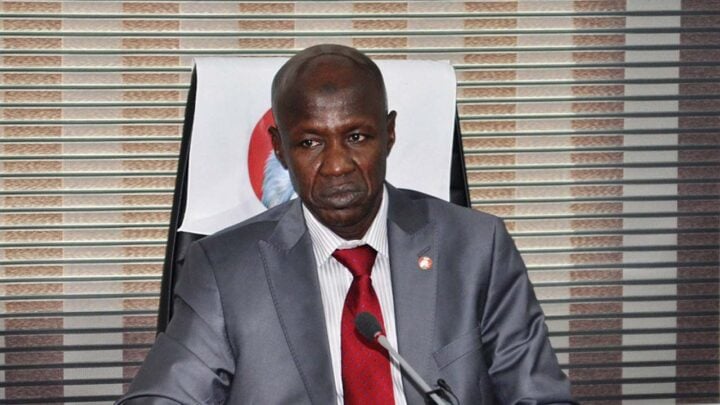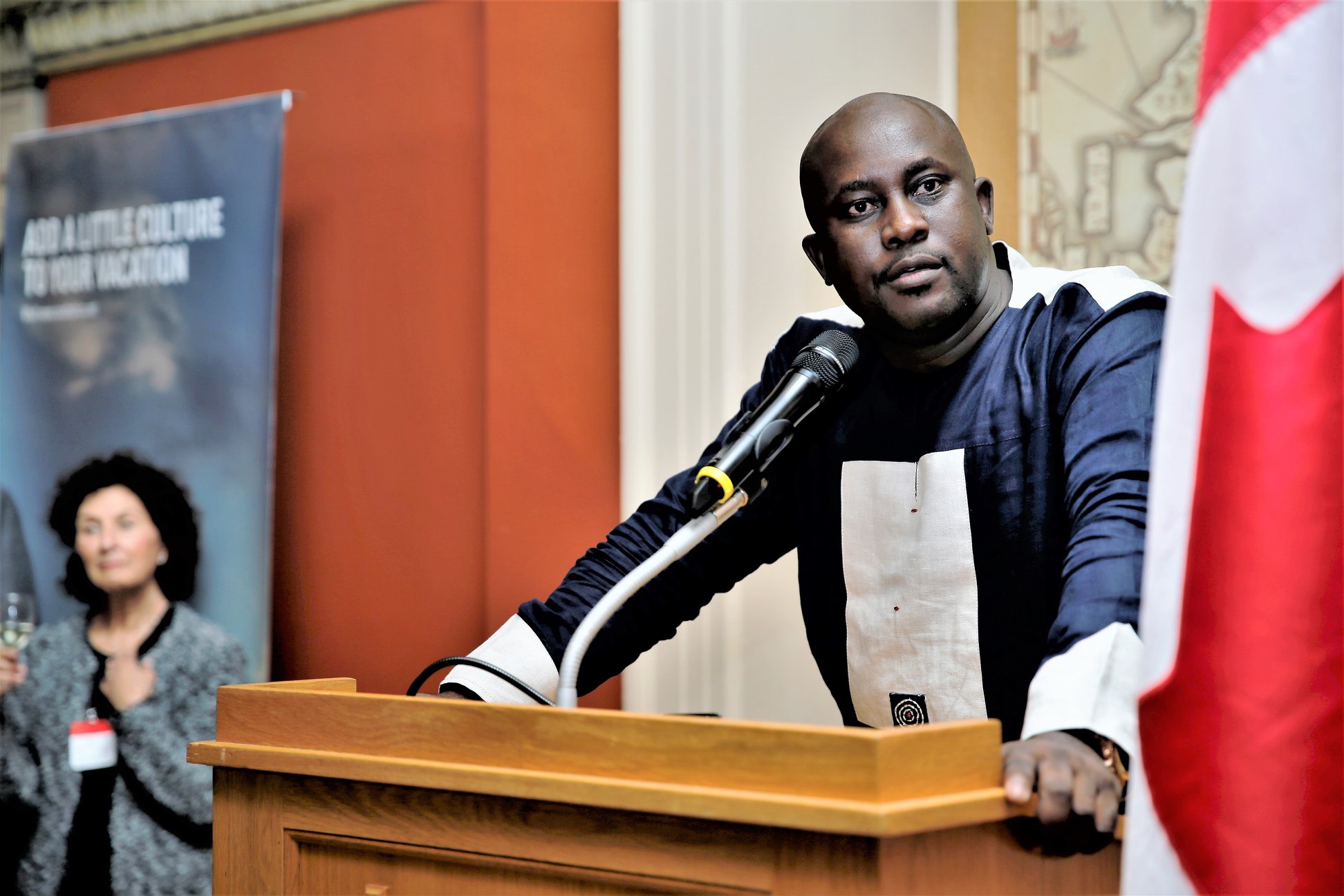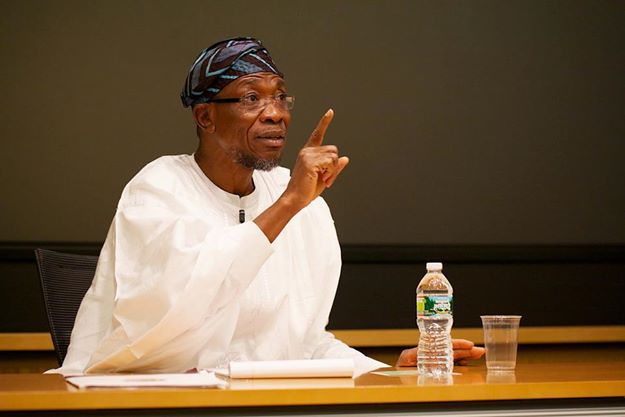BY RAYMOND NKANNEBE
Governor Ben Ayade of Cross River state is no doubt biting more than he can chew. After his reported involvement in the ordeal of Citizen Agba Jalingo who was released only a fortnight ago after spending months in incarceration following his critique of the Ayade administration in the state, the “Olimpotic Meristematis” crooner has taken his executive recklessness elsewhere. This time, in the hallowed chambers of the state judiciary.
Whereas the National Judicial Council following the retirement of the former Chief judge of the state had recommended Justice Akon Ikpeme for the position of the State Chief Judge being the most senior judicial officer in the state and in line with section 271(1) of the 1999 Constitution, the Governor against the run of play set up his own State Judicial Council to make a counter-nomination to that of Justice Ikpeme.
Apparently Governor Ben Ayade wanted a Chief Judge of Cross River extraction. Justice Ikpeme is from neighbouring Akwa Ibom State carved out of Cross River State by the military regime of Ibrahim Babangida, but married to a Cross Riverian. She was however born in the part of Cross River State that was to become Akwa Ibom in 1987 and have served all her career as a Judicial officer in the Cross River State Judiciary as well as being married to a Cross Riverian.
Advertisement
When the job of the rogue state Judicial Council as conscripted by the Governor was done, a new nominee in the person of Justice Maurice Eneje was equally sent to the National Judicial Council which however following the tradition of the profession amongst other considerations voted Ikpeme J. as the preferred candidate and Eneje J. as a reserve nominee.
Following a raucous session of the House on Tuesday, 2nd March 2020 as a result of the presentation of two separate reports by the judiciary committee saddled with the task of handling the substantive confirmation of Justice Ikpeme who had been serving in acting capacity, the Committee of the whole House vide a voice vote rejected her confirmation.
In a manner suggesting foul play, while a faction of the Judiciary Committee led by its chairman, Efa Esua cleared Ikpeme for confirmation, another faction reportedly led by Godwin Akwaji and five others rejected her confirmation. With their conflicting reports, the stage was set for controversy which culminated in the rejection of the reports and the resort to voice vote by a Committee of the Whole House that gave the anti-Ikpeme legislators the longer end of the stick.
Advertisement
The ostensible reason advanced by members of the Assembly whom it was alleged were monetarily induced by the state governor to the tune of 500,000 each, was that Justice Akon Ikpeme constituted a ‘security risk giving her ties with neighbouring Akwa Ibom.
Undeniably, the ultimate goal of the dramatised conflict was to pave the way for the appointment of Justice Maurice Eneje even if in acting capacity, and which appointment was consummated in haste by the state Governor on the phantom ground of avoiding a vacuum in the judicial administration in the state, as he was eventually sworn in, to finally seal the fate of Justice Ikpeme in the most unconstitutional manner. Justice Eneje and Governor Ayade hail from the same senatorial district and is rumoured to have a familial relationship with the Governor.
Be it known however that the state House of Assembly in exercise of their confirmatory Constitutional powers, did not as much as explain the details of the alleged security threat posed by Justice Ikpeme’s occupation of the office of the Chief Judge of the state, which she had occupied in acting capacity from December last year, until her surreptitious removal the other day. When one adds this to the fact that the State Security Services had late last year given a clean bill of health to Justice Ikpeme before her assumption of the office of CJ in acting capacity, then the purported reason given by the State House of Assembly, who are not security experts, pales into insignificance and reveals the political underbelly of their decision in a vintage case of voice of Jacob, but hands of Esau.
Governor Ben Ayade’s latest antic fits into a pattern of executive lawlessness that his regime has come to be known for in recent times. For an academic who rose to the position of a professor before making a foray into electoral politics, one would have expected some more decorum in his leadership style; which so far would make some dictators turn green with envy, but those expectations have not been met.
Advertisement
As Mr. Kayode Komolafe wrote in his Column on the back page of the This Day Newspaper of Wednesday, 4th March, 2020, Justice Ikpeme’s travails is sadly in the pattern of women suffering blatant discrimination in the course of their career because of one reason or the other often in breach of the Constitution and the African Charter on Human and Peoples Rights.
Section 42(1)(a) of the Constitution dealing with the Right to freedom from discrimination is instructive on this point. It reads, “A citizen of Nigeria of a particular community, ethnic group, place of origin, sex, religion or political opinion shall not, by reason only that he is such a person- (a) be subjected either expressly by, or in the practical application of any law in force in Nigeria or any executive or administrative action of the government, to disabilities or restrictions to which citizens of Nigeria of other communities, ethnic groups, places of origin, sex, religious or political opinions are not made subject.
Subsection 2 of the same section puts it beyond the realm of peradventure thus: No Citizen of Nigeria shall be subjected to any disability or deprivation merely by reason of the circumstances of his birth. Unfortunately however in a country with a prolonged history of indigene-settler dichotomy, the prime status of citizenship which defines the individual’s relationship with the state has been substituted for tribe and tongue often to please the primitive interest of ethnic and tribal warlords such as Governor Ben Ayade and his partners in crime in the State House of Assembly.
Whereas the NJC with the statutory function of regulating the appointment and removal of judges from office vide paragraph 21 of Part 1 of the 3rd Schedule to the Constitution had found Justice Ikpeme to be without any moral baggage as well as being intellectually qualified to fill the position, the ultimate consideration for Governor Ayade and his tribal warriors was the ethnicity of the nominee; an arcane consideration that would make a Martin Luther King (Jnr) who many years ago declared that a man should not be judged according to his tribe and tongue, but according to his capabilities and personal qualities, turn in his grave.
Advertisement
What is more, the long tradition of the judiciary and indeed the legal profession at large is a leadership structure anchored on seniority. A tradition which has been respected throughout the history of the profession by all its practitioners and sanctions meted to few bad eggs that make the remotest attempt to buck the tradition.
The Supreme Court in our not too distant history rose up in defence of the Constitutional role of the National Judicial Council in the appointment and removal of judicial officers in the case of Elelu-Habeeb v. A.G Fed (2012) 13 NWLR (Pt. 1318) 423 following the unceremonious removal of the then Chief Judge of Kwara State —Justice Raliat Elelu-Habeeb by the then Kwara state House of Assembly.
Advertisement
Declaring her removal as unconstitutional, the apex Court, Per. ADEKEYE JSC (now rtd.) held thus, “with the community reading of section 153, paragraphs 21(c) and (d), sections 271(1) and 292(a)(ii) and (b), the Constitution cannot provide for a procedure for the appointment of the Chief Judge of a State based on the recommendation of the National Judicial council and now drop such recommendation in the procedure for the removal particularly based on the allegation of misconduct. The Constitution will never give a right with one hand and remove such right with another hand. The Constitution and the law makers are in favour of running the affairs of the society smoothly. I agree with the pronouncement of the two lower Courts that the removal of the Chief Judge of Kwara State cannot be done without the input of the National Judicial Council”.
Even though the case under reference stemmed from unconstitutional removal of a judicial officer, the apex Court used the opportunity to throw ample judicial light on the dynamics of appointment of judicial officers in the Country. At page 493, Paras, D-F of the report, the Court stated, “although the Governor of a State has been vested with the power to appoint the Chief Judge of his State, that power is not absolute. He shares the power with the National Judicial Council, which recommends suitable persons, and the State House of Assembly, which confirms the appointment. It is in the spirit of the Constitution in ensuring checks and balances between the three arms of government that the role of the Governor in appointing and exercising disciplinary control over the Chief Judge of his state is subjected to the participation of the National Judicial Council and the House of Assembly of the State in the exercise to ensure transparency and observance of the rule of law”.
Advertisement
Applying the principle enunciated in the Elelu-Habeeb case which underscored the role of the NJC in driving the process of appointment of judicial officers, the NJC have severally wielded a big stick against judges who lend themselves to the political gimmicks of unscrupulous state governors.
For example, following the surreptitious removal of the former Chief Judge of Abia State, Justice Theresa Uzokwe by the Dr. Okezie Ikpeazu administration upon a motion of the State House of Assembly on alleged misconduct without the recommendation of the NJC, and the appointment of a new Chief Judge in the person of Justice Obisike Orji, without the role play of the NJC, the Council at its 85th meeting held on March 14th, 2018 sanctioned Justice Obisike Orji by forcing him to proceed on compulsory retirement for allowing himself to be sworn in as the acting Chief Judge without being recommended by the council.
Advertisement
The Abia example no doubt is a measure of how the NJC guards against the prostitution of the judiciary given the sacred role judges play in the society.
Against the backdrop of the foregoing, the recent crisis rocking the Cross River state judiciary deserves all the condemnation it can get. And the ethnic considerations that underpins it makes matters worst especially for a country where at some point in her history a Yoruba was the Chief Judge of a State in the North and whose judges have in the past headed the judiciary of other nations within the African continent.
When one considers the fact that the only constitutionally delimited qualification to become a Judge of a State High Court, is a minimum of 10 years of practice as a legal practitioner in Nigeria, then it boggles the mind how other criteria not written into the law have become the very litmus test, such as being a full indigene of the State as played out in Cross River state and have severally been the practice in other states. But that will be a story for another day.
In the mean time, it must be stated that the manner of appointment of the de facto Chief Judge of Cross River State is unconstitutional, ultra vires, null and void, as nothing comes from nothing; and it is gratifying that the NBA have since issued a strong worded statement condemning the gross abuse of the Rule of Law rocking the state judiciary as instigated by the impish state Governor.
Consequently, the minimum expectation from all these as was seen in the Abia example is the outright dismissal of Justice Maurice Eneje from the Judiciary for allowing himself to be used as a tool to bring the institution of the judiciary to ridicule, irrespective of the fact of his having been recommended as a reserve nominee by the NJC. In the circumstances in which he was called upon to be sworn in as the acting Chief Judge, courtesy and the cherished tradition of the profession behoved on him to resist such a temptation that strikes at the fabric of the institution he’s called upon to superintend. That is what nobility and honour portends and judges are, or ought to be honourable men. For completion, the NJC must as a matter of necessity make a further recommendation of Justice Ikpeme to the Governor for appointment as the substantive Chief Judge of the State. I am convinced that anything shorn of these would have opened the floodgates for unscrupulous state governors to circumvent the Constitution and ordain their preferred candidates into judicial positions especially on very spurious grounds.
If the NBA failed to protect the judiciary during the #OnoghenGate, it shouldn’t this time.
Raymond Nkannebe, a legal practitioner, writes from Lagos. Comments and reactions to [email protected]. He tweets @RayNkah.
Views expressed by contributors are strictly personal and not of TheCable.






